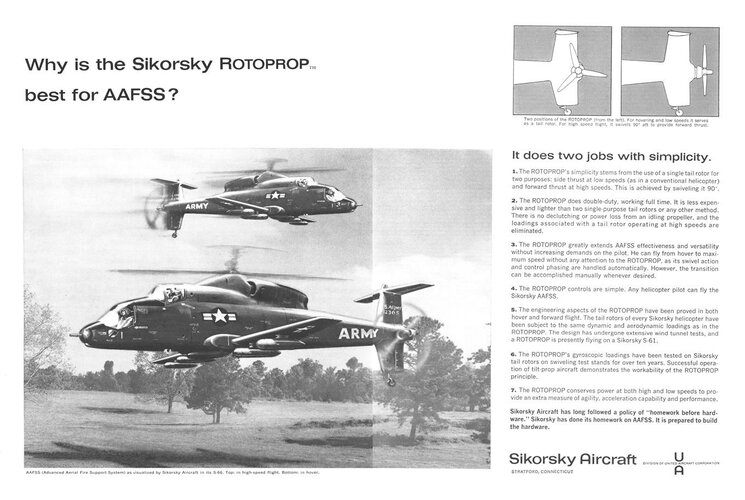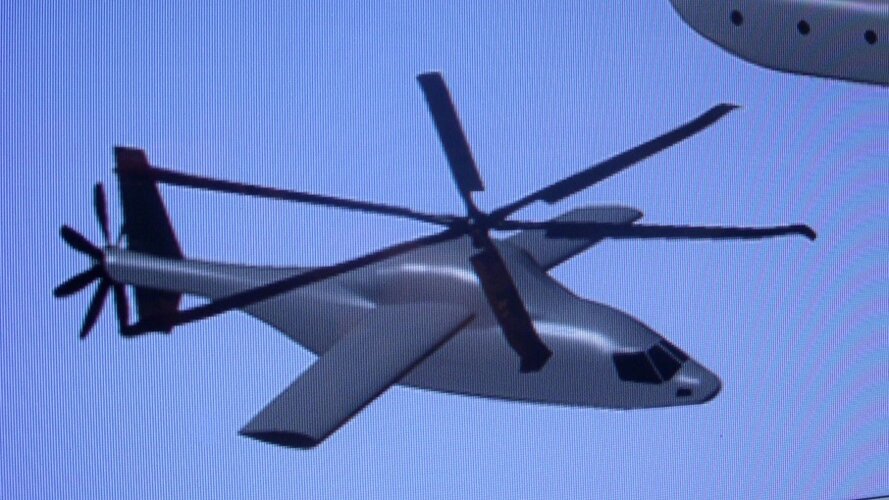Reality of US politics.
Army awards Bell Textron contract worth billions to replace Black Hawk helicopter
(KERA-PBS (TX), Dec. 6, Seth Bodine)
Bell Textron Inc. beat two of the biggest defense contractors in the industry for a U.S. Army contract to manufacture the replacement of the UH-60 Black Hawk. Securing the contract means billions for the company for decades to come.
Bell was competing against Lockheed Martin’s Sikorsky and Boeing’s DEFIANT X helicopter. The Army chose Bell’s tilt-rotor design with the V-280 Valor, which will eventually replace the Black Hawk. The Black Hawk has been flying for more than four decades.
The contract could be worth about $70 billion for decades to come, according to reporting from Reuters. The first set of helicopters will be worth $7.1 billion
The contract is part of Future Vertical Lift – an effort to modernize the Army, under the Future Long-Range Assault Aircraft program.
“We are honored that the U.S. Army has selected the Bell V-280 Valor as its next-generation assault aircraft,” said Scott C. Donnelly, Textron’s chairman and chief executive officer. “We intend to honor that trust by building a truly remarkable and transformational weapon system to meet the Army’s mission requirements. We are excited to play an important role in the future of Army Aviation.”
Bell, which is headquartered in Fort Worth, employs more than 4,000 people.
Richard Aboulafia, managing director at Aerodynamic Advisory, a boutique aerospace and defense consultancy, said this is a huge deal for Bell Textron as its programs, such as V-22 Osprey and AH-1Z Viper, start to wind down.
“They wouldn’t have had much of a future without this,” Aboulafia said. “This is going to be the center of what Bell does in the next decade. They’ll still have their civil business, but you know, they’re a third player after Airbus and Leonardo.”
The new contract is bound to create jobs as time goes on and the helicopter becomes in service starting in 2030, Aboulafia said.
Fort Worth Mayor Mattie Parker called the contract a historic moment.
“This historic decision will preserve and expand our world-class workforce here in Texas. This is a historic win for Bell and Team Valor, and a big win for the state of Texas,” Parker wrote in a tweet.
Texas ranks third in the amount of defense contracts – companies in the state received $47.3 billion in 2021.
There’re several components that go into choosing a new helicopter. In a past interview with Fort Worth Report, Dudley Smith, a professor of practice in mechanical engineering with expertise in the aerospace industry at University of Texas at Arlington, said how far and fast the aircrafts can fly, and their reliability and cost effectiveness go into awarding a contract.
“We’re American taxpayers. And the people that derive these requirements, they’re very sensitive to that, and the military is sensitive to that,” Smith said. “They only have so many dollars, so they have to get as they would say, the best bang for your buck.”
Experts like Aboulafia believe the contract will be formally contested by Sikorsky and Boeing. Doing so is common but seldom successful, and is often used as a way of getting more information about why the company lost the contract and why the other company won.
Sikorsky and Boeing officials remain confident in their product, DEFIANT X, as the best choice.
“We remain confident DEFIANT X is the transformational aircraft the U.S. Army requires to accomplish its complex missions today and well into the future. We will evaluate our next steps after reviewing feedback from the Army,” according to a joint statement from Sikorsky and Boeing.
It isn’t a huge loss for Sikorsky or Boeing, Aboulafia said. The Black Hawk will still be in production even with the new helicopter for decades to come. Boeing still has the Apache and Chinook helicopters.
“It also means that they’re going to be lobbying, to delay FLRAA to fund Black Hawk procurement on an ongoing basis,” he said. “In other words, the FLRAA program now has an enemy.”
Lockheed Martin is the top recipient of defense contracts. In fiscal year 2021, the Department of Defense awarded $39.2 billion in contracts to Lockheed. The company employs more than 22,000 people in the Fort Worth area and has produced aircrafts such as the F-16 Falcon, F-35 Lightning II at an aeronautics facility according to a Lockheed Martin spokesperson. Sikorsky is headquartered in Stratford, Connecticut. Bell and Lockheed Martin are also competing for the Army’s Future Attack Reconnaissance Aircraft, which are helicopters designed for scouting and reconnaissance.
Sikorsky Aircraft loses $1.3B contract with U.S. Army
(WTNH-ABC (CT), Dec. 6, Kent Pierce and Jodi Latina)
The U.S. Army was searching for the next generation of long-range helicopters, but Sikorsky will not be its new supplier. Instead, the army signed Bell Textron, a Texas-based company.

www.wtnh.com
Sikorsky Aircraft, the Stratford-based helicopter manufacturer, lost out on a big contract with the U.S. Army. The Army was searching for the next generation of long-range helicopters, but Sikorsky will not be its new supplier. Instead, the Army signed Bell Textron, a Texas-based company.
It was awarded the $1.3 billion contract over Sikorsky to come up with the future workhorse of the American Army.
For decades, Sikorsky’s Black Hawk helicopter has been that workhorse, and it’s looked relatively the same for all those years. Now, however, the Army wants to go in a new direction, one that’s faster with a longer range. That chalks up to a radically different helicopter.
Sikorsky thought its Defiant-X helicopter would fit this new bill. Instead, the Army decided to go in a different direction entirely. It chose Bell’s V-280 Valor.
That vehicle isn’t really a helicopter, however. It’s a tilt-rotor aircraft, meanings it’s more like an airplane, except its propellers tilt up so it can take off and land like a helicopter. It’s similar to Bell’s Osprey aircraft, which the Navy and Marines have been using for 30 years. The Osprey did have its share of safety controversies years ago, however.
Sikorsky signed a deal with the state of Connecticut this year to remain in the state in exchange for big tax breaks. But those tax breaks were contingent on Sikorsky winning some of these important military contracts.
Gov. Ned Lamont said the decision took the start by surprise. He spoke to the head of Sikorsky over the phone when the news broke.
“I wished him happy holidays, and he said, ‘I wish I had happier news for you,'” Lamont said.
Despite the loss, the company remained optimistic about its future.
“We remain confident DEFIANT-X is the transformational aircraft the U.S. Army requires to accomplish its complex missions today and well into the future. We will evaluate our next steps after reviewing feedback from the Army,” commented a spokesperson from Sikorsky. And even though evaluations need to be made, the state reaffirmed its support of Sikorsky as a Connecticut legacy.
“This news is disappointing, but it’s important to remember you can’t fly without Connecticut,” Lamont said. “Sikorsky is a legacy Connecticut company with one of the best-trained workforces in the world, and while leadership takes the time to review their bid to understand more about the Army’s decision, we stand behind them and their employees. The state will continue to work closely with Lockheed Martin and Sikorsky to secure future opportunities for the people of Connecticut to make the most advanced aircraft in the skies.”
There are still years on the Black Hawk contract, which Lamont said means jobs will stay in Connecticut.
State Sen. Kevin Kelly (R-District 31) said his concern is making sure Sikorsky headquarters stays in Connecticut.
“You also have all the folks who work at Sikorsky in our communities,” he said. “They are the fabric of Stratford, Shelton and Seymour.”
The company generates nearly 30,000 jobs in Connecticut and billions in tax revenue.
“I’m confident they will continue to do what they need to do to grow their footprint in Connecticut,” Kelly said.









